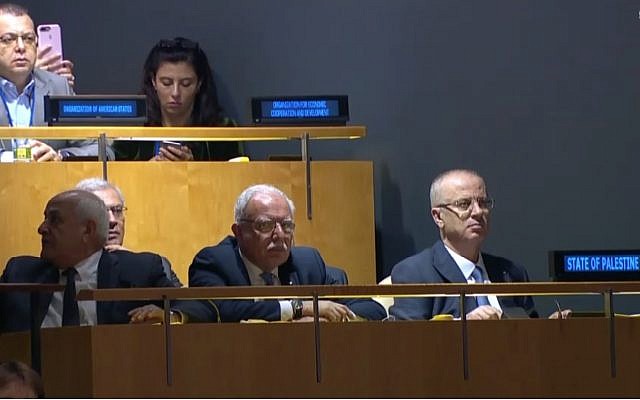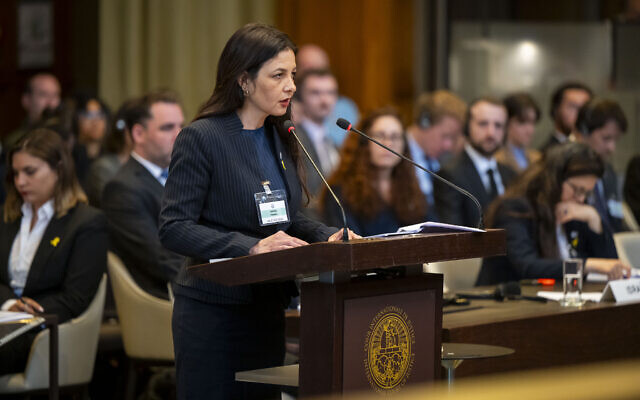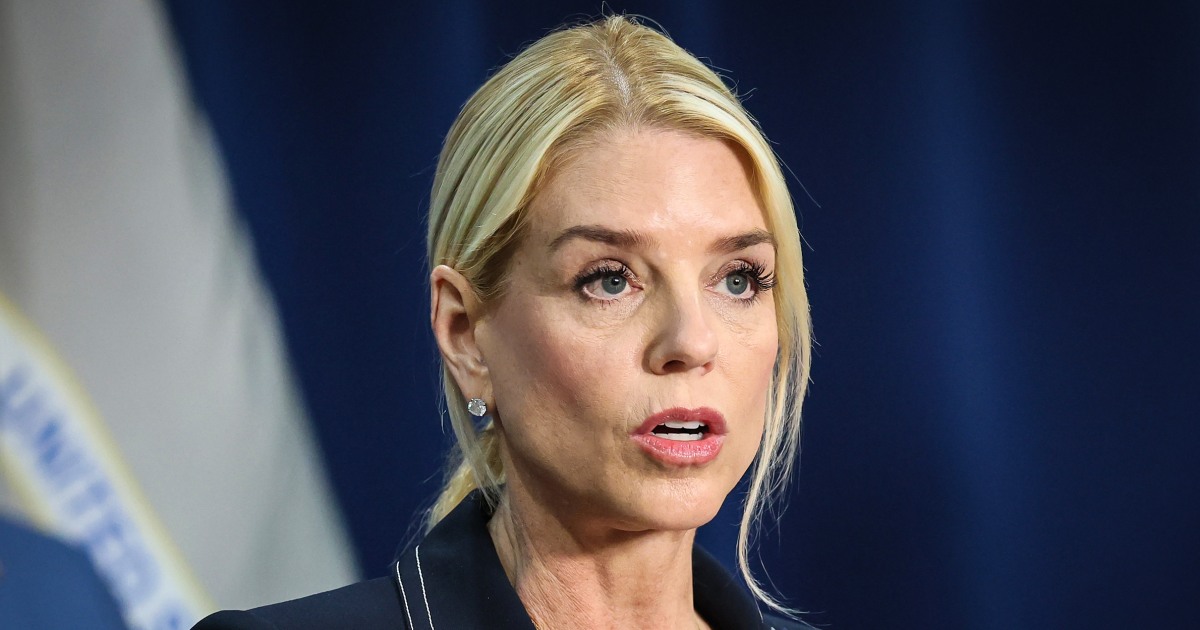The decision by the United States to refuse to issue visas to Palestinian Authority President Mahmoud Abbas and dozens of others of PA officials, in order to prevent them from attending the UN General Assembly in New York next month, inevitably generated strong protest from the PA itself, as well as from several European countries and Palestinian allies.
The US State Department announced its decision on Friday, saying it would prevent Abbas and some 80 other Palestinian officials from participating in the UN General Assembly scheduled to convene in September.
Abbas was also scheduled to attend a summit at the UN headquarters hosted by France and Saudi Arabia during which Britain, France, Australia and Canada are planning to formally recognize a Palestinian state.
The Palestinian Authority and the foreign ministers of a number of European countries pointed out in response that the 1947 UN Headquarters Agreement signed between the UN and the US prohibit the US from restricting access to the UN headquarters district in New York for representatives of UN member states and UN officials.
So is Washington’s decision to ban the Palestinian Authority representatives lawful?
The 1947 UN Headquarters Agreement
Section 11 of the 1947 UN Headquarters Agreement prohibits US authorities from restricting access of UN members representatives, UN officials, and officials of UN “specialized agencies.”
Technically, the Palestinian Authority only has non-member observer status as “the State of Palestine” at the UN.

Screen capture from video of the Palestinian delegation as Palestinian Authority President Mahmoud Abbas addresses the 73rd United Nations General Assembly, September 27, 2018. (United Nations)
But the headquarters agreement also prohibits the US from restricting access to anyone invited to the headquarters by the UN, which would include Abbas and the other PA officials.
The agreement itself is also legally binding on the US, since it is an international treaty signed by the US and approved by the US Congress in domestic law in 1947.
And under the US Constitution, treaties ratified by the Senate are binding on federal and state authorities.
Past precedent
But there is precedent for the US decision.
In 1988, the UN invited then-leader of the Palestine Liberation Organization Yasser Arafat to address the General Assembly, but the US denied him a visa citing national security and terrorism concerns.
Eventually, the UN decided to move the General Assembly session to its offices in Geneva, Switzerland, to enable Arafat to address it.

Palestinian Liberation Organization (PLO) leader Yasser Arafat delivers a speech to a specially-called session of the United Nations, 14 December 1988, in Geneva, at UN European headquarters in Palace of Nations. (Photo by DERRICK CEYRAC / AFP)
The issue was brought before the International Court of Justice, an agency of the UN, which ruled that the US was legally bound by the headquarters agreement. But the ICJ never issued a final ruling on the Arafat visa denial because the issue was brought to arbitration, although that process too was never brought to a definitive conclusion.
The national security argument
Explaining its decision to ban Abbas on Friday, the State Department said in its announcement that it was “in our national security interests to hold the Palestine Liberation Organization and the Palestinian Authority accountable for not complying with their commitments, and for undermining the prospects for peace.”
The State Department appeared to be referring to a law passed by Congress in 2014 amending the Foreign Relations Authorization Act. That amendment authorized the US government to deny admission to the US to national representatives who have engaged in espionage or terrorist activities against the US or its allies, or who may pose a threat to US national security interests.
This law was used to deny a visa to Iran’s nominee to be its ambassador to the UN, Hamid Aboutalebim, in 2014, in light of his participation in the seizure of the US embassy in Iran in 1979.
“Before the PLO and PA can be considered partners for peace, they must consistently repudiate terrorism — including the October 7 massacre — and end incitement to terrorism in education, as required by US law and as promised by the PLO,” the US statement on banning Abbas added.
Back in July, when the State Department first announced its intention to ban some PA officials from the UN General Assembly, it also cited the PA’s monthly payments to Palestinian prisoners — including terrorists — and to families of dead assailants, stipends that Israel, the US and others say incentivize terror attacks.
Abbas finally condemned Hamas’s October 7, 2023, massacres in June of this year. He also reformed how payments to Palestinian terrorists and their families are made by the Palestinian Authority in February this year, which reportedly led to hundreds of thousands of prisoner families losing their monthly payments. It is unclear if some terrorists and their families are still receiving such payments.
It remains unclear if Abbas and the rest of his delegation would qualify as having engaged in terrorist activities against the US or its allies under the terms of the 2014 law to justify refusing them entry to the US for the UN General Assembly.
The State Department also said in its Friday statement that “The PA must also end its attempts to bypass negotiations through international lawfare campaigns, including appeals to the International Criminal Court and International Court of Justice, and efforts to secure the unilateral recognition of a conjectural Palestinian state.”

Israel’s Foreign Ministry Legal Adviser Tamar Kaplan Tourgeman addresses the International Court of Justice during oral arguments over South Africa’s application asking the court to order Israel to halt its military campaign against Hamas, May 17, 2024. (International Court of Justice)
It said that both steps “materially contributed to Hamas’s refusal to release its hostages, and to the breakdown of the Gaza ceasefire talks.”
In theory, it could be argued that these efforts undermine and threaten US national security interests and therefore run afoul of the 2014 law, and indeed that is what the State Department appeared to be hinting at when it stated that it was in US national security interests “to hold the Palestine Liberation Organization and the Palestinian Authority accountable for not complying with their commitments, and for undermining the prospects for peace.”
Open questions
The constitutionality of the 2014 amendment, bearing in mind its apparent contradiction of the Headquarters Agreement and the subsequent Congressional legislation, has never been challenged in the US courts.
And it appears highly unlikely that if the law is challenged in respect to the upcoming UN General Assembly, the case could be addressed before the session begins.
A more likely outcome may simply be for the UN to act as it did in 1988 and move part of the General Assembly proceedings to Geneva to enable Abbas and his delegation to participate in the diplomatic activity there instead.


